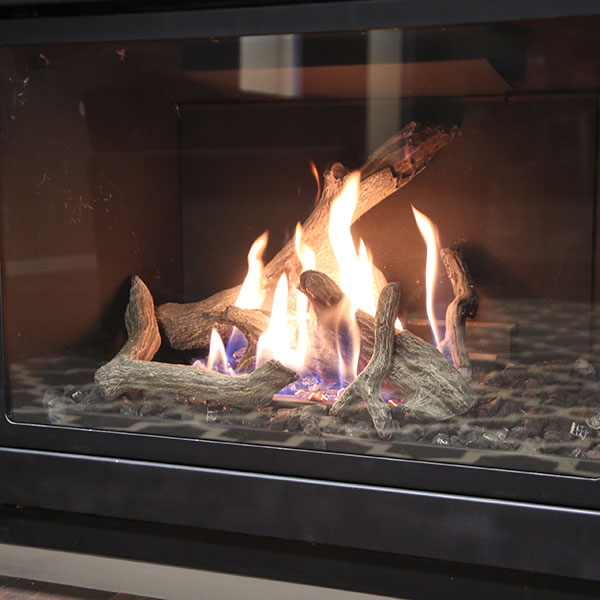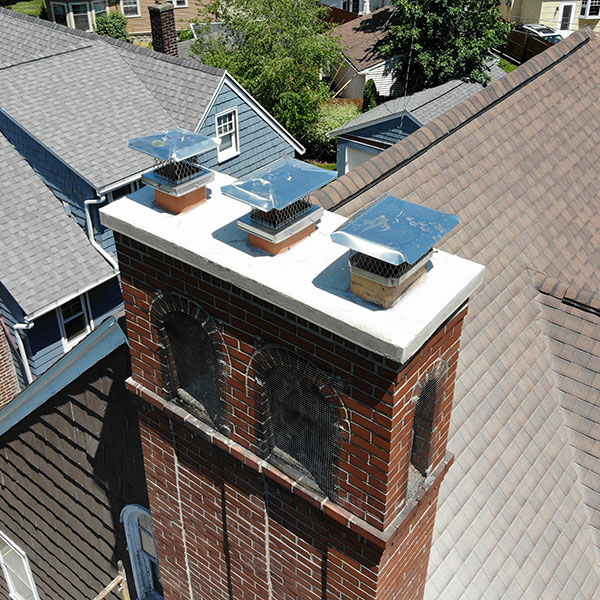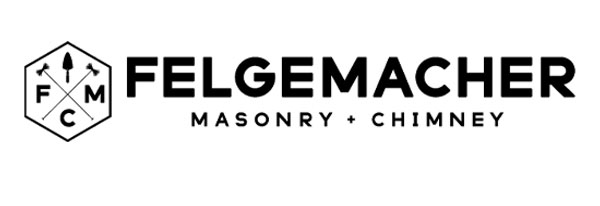Ways To Tell What Kind Of Chimney You Have
A chimney is a chimney, right? Believe it or not, the answer is no. There are several types of chimney systems available today. Each of them has unique characteristics and use cases. So let’s look at a few ways to tell what kind of chimney you have.
 Does fuel source affect the kind of chimney?
Does fuel source affect the kind of chimney?
But first, we wanted to answer this question: does the fuel source you use affect the kind of chimney attached to it? The answer is not a straightforward yes or no.
A gas-powered fireplace may have a smaller chimney pipe and flue as there is less concern about creosote. Likewise, a wood-burning fireplace will need a larger one. However, if you had the team at Felgemacher Masonry & Chimney convert your wood-burning fireplace to a gas-powered one, you most likely kept the same chimney in place. The only conversion was to the fuel source, not the chimney itself. So with that out of the way, what are some ways to tell what kind of chimney you have? The answer starts with understanding each option.
Option #1: Prefabricated chimneys
Modular or prefabricated homes often come with a — you guessed it — prefabricated chimney. Sometimes referred to as a factory-built chimney, these usually have a metal flue pipe utilizing sheet metal instead of masonry. So if your home is modular, you most likely have a prefabricated chimney.
Option #2: Chimney vents
However, you may not have a fireplace at all. Instead, you have a few vents for your HVAC system, water heater, or boiler. These are still chimneys, though they are often much smaller. Typically, they fall into one of two categories: a Class A (for high-temperature needs) vent or a Class B (for gas appliances) vent.
Option #3: With or without aesthetics
The aesthetics of your chimney are another way to tell what kind of chimney you have. Often, the cooling features of the pipe will come in one of two options: Air-Cooled or Insulated. However, our focus is less on that aspect and more on the look of your chimney. With both options, your home contractor may have added a “Chase” or a “Chase Cover” that helps your chimney blend in with your home.
Option #4: Full-masonry chimneys
The fourth option is the most obvious way to tell what kind of chimney you have. Full-masonry chimneys are made of brick and mortar. They also will almost always include a cap, crown, and flashing. When properly maintained, masonry chimneys can last for a very long time.
Option #5: Free-standing stoves
Finally, we wanted to address one final type: free-standing stoves. These can be gas, wood, or pellet-burning. The primary difference here is that they are attached to an outside unit, such as a cooking stove or outside fireplace.
 Serving your needs, no matter the kind of chimney you have
Serving your needs, no matter the kind of chimney you have
Each kind of chimney serves a purpose, depending on its intended use for your home. The masonry style is what many of us think of when we hear the word “chimney”, but that doesn’t mean it’s the only one.
And that’s where we come in. Our team can handle the service and maintenance of each of these and more, including performing an annual sweep and inspection. Would you like to get in touch with us to schedule your appointment? Call 716-907-4914 (Greater Buffalo) or 585-207-3658 (Greater Rochester) to schedule an appointment with a Certified Chimney Professional® today! You can also contact us online.





